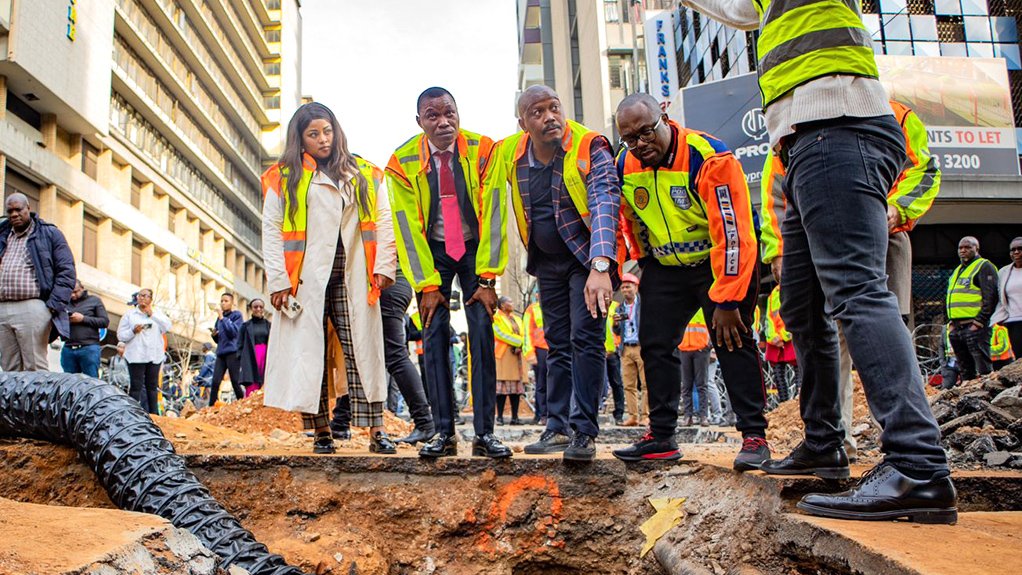The City of Johannesburg will have to foot the bill for the Lilian Ngoyi Street repairs after its request to declare a local state of disaster, which would unlock much-needed funding from the National Treasury, was denied by the national government.
The City estimated that it would cost around R178-million to fix Lilian Ngoyi Street (formerly Bree Street) which suffered a massive gas explosion on 19 July.
The blast was caused by methane gas that bubbled to the highest point of the cavity under the road. The gas was trapped in the tunnel because manholes had been welded shut to prevent cable theft, and a spark from an unknown origin ignited it.
It ripped up over 400m of the road and destroyed underground infrastructure. The blast also killed one person and injured 41 others.
City manager Floyd Brink previously said the City did not have money to fix the street and underground infrastructure, adding that a disaster declaration would assist.
A disaster declaration follows an unexpected event that causes mass harm or damage to infrastructure and where the disruption is such that the event exceeds an administration's capacity to cope with the event using its own resources.
On Thursday, during a caucus break at the sitting of the Johannesburg council, Mayor Kabelo Gwamanda said the national government had rejected the City's request to declare a disaster.
He said the City would now have to repurpose its budget to pay for repairs to the road "until we (the city and national government) can find each other".
He said the City expected to appoint a contractor on Friday.
"[The contractor] needs to still do their compliance.
"The process is ongoing. When [national government] gets back to us [on providing funding for the road repairs], we will have made significant strides in fixing the road."
Gwamanda did not say why the request was rejected.
The repairs include redesigning the cavity below the road. Lilian Ngoyi Street was built in 1935, before constructors understood the dangers of methane gas, which occurs naturally underground and in sewers.
There's a network of underground tunnels below the city's roads. These tunnels are used to store cables needed to keep the city running.
In October, Brink said the City would also investigate the underground tunnels in the CBD to ensure that it does not suffer a similar event in the future.
Brink previously said the City would make the appointment for the tunnel assessment by 9 October, and the work should take about 12 weeks to complete from the award date.
Meanwhile, on Thursday, the Democratic Alliance (DA) failed to have the city council dissolved.
In her speech before the motion, DA Johannesburg caucus leader Belinda Kayser-Echeozonjoku gave the explosion and other events as reasons for the council's dissolution.
"We have seen the city have four mayors since the 2021 election.
"We have seen the lack of respect for the rules of council processes, resulting in decisions in this council being challenged in court, causing the city reputational damage and costing money that could be used to address service delivery challenges.
"We have seen roads exploding, buildings on fire due to lack of maintenance and bylaw enforcement in the city," she said.
One of the biggest problems the City of Johannesburg faces is a lack of funding. In his June 2023/24 budget speech, Finance MMC Dada Morero said the City had R5-billion in its coffers but needed R9-billion.
Morero introduced higher rates as a way to fund the city's R80.9-billion budget.
EMAIL THIS ARTICLE SAVE THIS ARTICLE
To subscribe email subscriptions@creamermedia.co.za or click here
To advertise email advertising@creamermedia.co.za or click here











